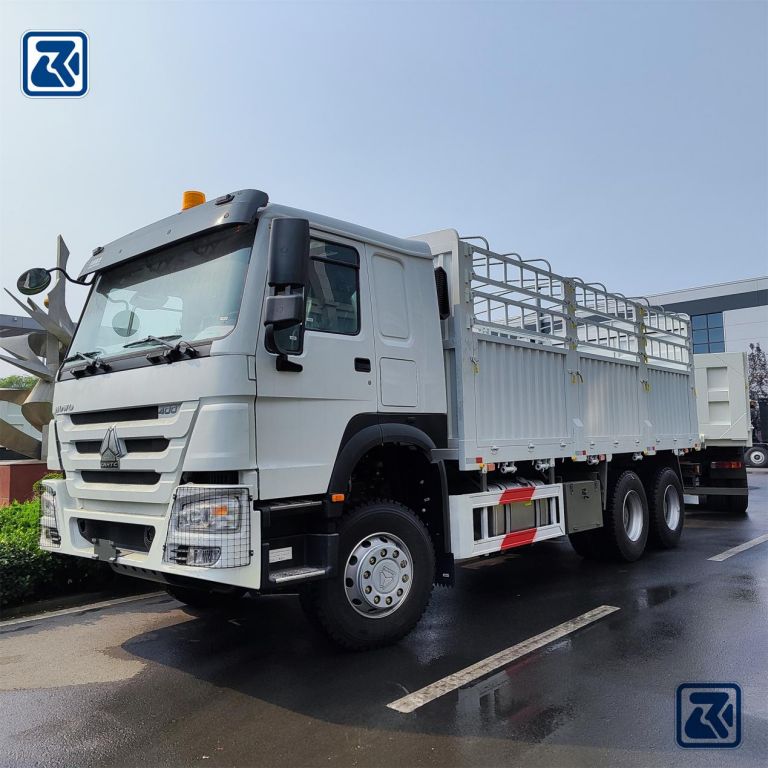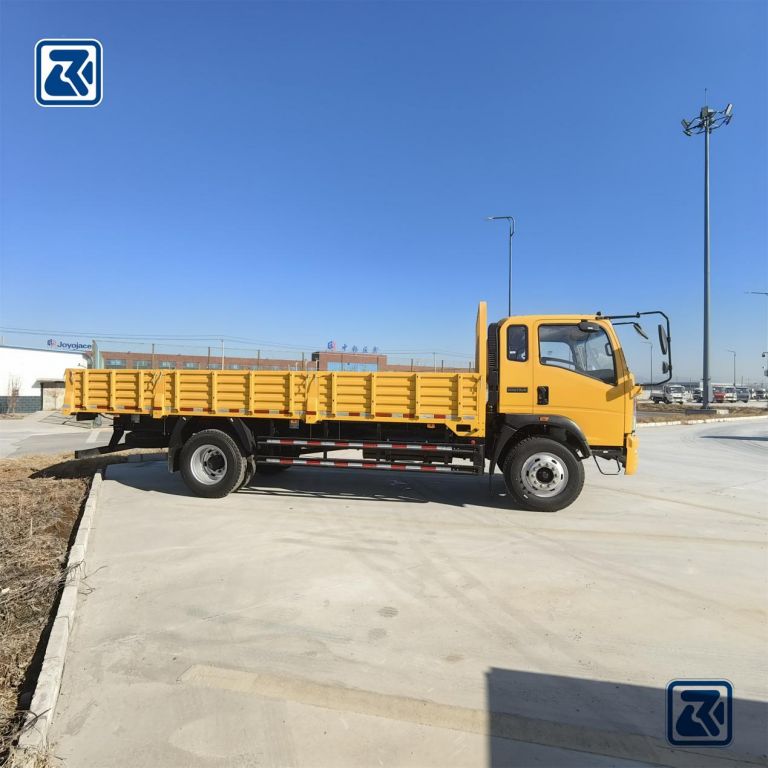NEEDL EMARK PT DJARUM .CN INTERNATIONAL GROUP CHINA CO., LTD. is a leading manufacturer of heavy-duty commercial vehicles, renowned for its range of HOWO tractors. These trucks are highly regarded for their advanced safety features, reliable performance, and versatility in various transportation applications. Regular tire inspections for HOWO tractors are crucial for safety and performance. Tires play a vital role in vehicle stability, handling, and braking, especially in demanding transport environments, ensuring safe and efficient operation.
Our commitment to safety is reflected in the advanced safety technologies integrated into our tractors, including state-of-the-art braking systems, stability control features, and driver assistance technologies. This ensures that HOWO tractors provide a high degree of safety and protection for both drivers and transported goods.
Table of Contents
Overview of HOWO Tractors
HOWO tractors are versatile and powerful commercial vehicles, designed for heavy-duty applications. These trucks offer superior performance, reliability, and efficiency.
Equipped with powerful engines and high towing capacity, HOWO tractors are ideal for long-distance transportation of large cargoes such as containers, construction machinery, and hazardous materials. The ergonomically designed cabins with advanced features like air suspension and air conditioning provide a comfortable driving experience, reducing fatigue and increasing productivity.
A key feature of HOWO tractors is their fuel efficiency, which helps businesses optimize operational costs. Additionally, these trucks come in various configurations, allowing customization to meet the specific needs of different industries.
Proper tire maintenance is essential for the safe and efficient operation of commercial trucks like HOWO. Regularly inspecting tire conditions, maintaining proper inflation pressure, and replacing worn tires can significantly improve truck handling, fuel efficiency, and overall lifespan. Prioritizing tire maintenance enhances the performance and reliability of HOWO tractors, ensuring smooth and cost-effective transportation operations.

Importance of Regular Tire Inspections
Regular tire inspections are crucial for ensuring vehicle safety and performance. Here are the key reasons why:
- Safety: Well-maintained tires are essential for safe driving. Inspections can identify potential tire issues that may lead to blowouts, tread separation, or loss of control while driving. Worn or damaged tires significantly increase the risk of accidents, endangering the safety of drivers and other road users.
- Improved Handling and Fuel Efficiency: Properly inflated and balanced tires provide better traction, handling, and braking performance. This not only enhances the driving experience but also improves fuel efficiency by reducing rolling resistance. Neglecting tire maintenance can lead to uneven wear, negatively impacting vehicle handling and fuel economy.
- Reduced Blowout Risk: Underinflated, overloaded, or excessively worn tires are more prone to blowouts, which can cause drivers to lose control of the vehicle. Regular inspections and maintenance help identify and address these issues before they become severe problems.
- Consequences of Neglecting Tire Maintenance: Ignoring regular tire inspections can have serious consequences. Worn or damaged tires lead to decreased stability, longer braking distances, and increased risk of accidents. Additionally, neglecting tire maintenance can result in premature tire wear, requiring more frequent and costly replacements.

Checking Tread Depth
Here are some key points:
- Use a Tread Depth Gauge: Insert the probe into the tread groove and read the measurement. Tread depth is measured in 32nds of an inch.
- Legal Minimum Tread Depth: The legal minimum tread depth in most areas is 2/32 inches. However, it is recommended to replace tires at 4/32 inches as traction and performance can significantly decline before reaching the legal limit.
- New Tire Tread Depth: New tires typically have a tread depth of 10/32″ or 11/32″. Truck, SUV, and winter tires may have even deeper tread.
- Coin Test: Insert a coin into the tread groove with Lincoln’s head facing down. If you can see the top of his head, your tread depth is at or below 2/32″, and tire replacement is necessary.
- Uneven Tread Wear: May indicate alignment or suspension issues that need to be addressed. If one area of the tire is wearing faster than others, have a mechanic inspect your vehicle. Consistent, even wear is normal, but significant unevenness can indicate a problem.
Regularly checking tread depth, whether using a tread depth gauge or coin test, is crucial for maintaining safe driving conditions. Don’t wait until you reach the legal limit to replace worn tires, as traction reduction and hydroplaning risks increase before reaching 2/32″.
Monitoring Tire Pressure
Proper tire pressure is vital for the safety and fuel efficiency of your HOWO tractor. Underinflated tires can significantly affect vehicle performance and pose serious safety risks.
Underinflated tires increase rolling resistance, causing the engine to work harder and consume more fuel. This not only reduces fuel efficiency but also puts additional stress on the engine, potentially shortening its lifespan. Overinflated tires can lead to uneven tread wear and increased risk of blowouts, affecting vehicle stability and handling.
To ensure optimal performance and safety, it is recommended to regularly check your HOWO tractor’s tire pressure using a reliable tire pressure gauge. The recommended tire pressure for HOWO tractors typically ranges between 90-110 PSI. Keeping tires within this pressure range helps maximize fuel efficiency, extend tire life, and maintain vehicle stability and handling.
If the tire pressure is too low, use an air compressor or tire inflator to bring it up to the recommended level. If the pressure is too high, release some air to reach the optimal range. Remember to check tire pressure when the tires are cool, as driving increases tire pressure.

Checking for Damage and Wear
Regular tire inspections are essential for maintaining vehicle safety and performance. During visual inspections, carefully examine the tread and sidewalls for any signs of damage or excessive wear.
- Look for Cuts, Cracks, or Punctures: These can cause air leaks and lead to tire deflation. Also, check for bulges or blisters, which indicate internal tire damage and may result in blowouts. Any noticeable cuts, cracks, or bulges mean the tire needs replacement.
- Check Tread Depth: The tread depth should be at least 2/32 inches—use a coin to check. If the tread is worn down to the wear indicators (raised parts within the tread grooves), the tire needs replacement. Worn tires have less grip and are more prone to hydroplaning on wet roads.
Regular tire inspections (at least monthly) are important to catch these issues early. Addressing problems like uneven wear, insufficient tread depth, or small punctures can prevent dangerous blowouts or costly tire replacements.
If any damage is found, have a professional tire technician inspect the tire. They can determine if the tire can be safely repaired or needs replacement. Proper tire maintenance is crucial for vehicle handling, braking, and overall safety.
Tire Rotation and Balancing
Regular tire rotation and balancing are essential for maintaining even wear and maximizing tire lifespan. Tire rotation helps balance the wear on each tire, as front tires typically wear faster due to steering and braking forces. Tire balancing ensures equal weight distribution on each wheel, preventing uneven wear and vibrations at high speeds.
It is recommended to rotate tires every 6,000 to 8,000 miles (about every six months). For convenience, this can be done during regular oil changes. Uneven wear patterns, such as one tire wearing faster than others, usually indicate the need for tire rotation.
Steps for tire rotation and balancing include:
- Park the vehicle on a level surface and apply the parking brake.
- Loosen the lug nuts on each tire but do not remove them completely.
- Use a jack to lift the vehicle and securely place it on jack stands.
- Remove the lug nuts and tires, then rotate the tires according to the recommended pattern (front to rear or diagonal).
- Reinstall the tires and hand-tighten the lug nuts.
- Lower the vehicle and use a torque wrench to fully tighten the lug nuts to the manufacturer’s specifications.
- Take the vehicle to a tire shop for balancing, where professional equipment ensures each tire is properly balanced.

Professional Tire Maintenance Services
Maintaining commercial truck tires is crucial for ensuring safe, efficient, and economical operations. Professional tire maintenance services offer numerous benefits, making them a worthwhile investment for any fleet.
Firstly, regular tire inspections and maintenance performed by qualified technicians can significantly enhance safety. Worn or underinflated tires increase the risk of blowouts and accidents, which can have catastrophic consequences. Professionals can identify problems early and make necessary repairs or replacements to mitigate these risks.
In addition to safety, proper tire care results in substantial cost savings. Well-maintained tires last longer, increasing return on investment. They also improve fuel efficiency, as properly inflated and aligned tires have less rolling resistance. Avoiding costly breakdowns and premature tire replacements further adds to the financial benefits.
NEEDL EMARK PT DJARUM .CN INTERNATIONAL GROUP CHINA CO., LTD. offers comprehensive tire maintenance services to support the needs of commercial truck operators. Their technicians conduct thorough inspections, monitor tire pressure, rotate and balance tires, and promptly replace tires when necessary. They also provide seasonal tire changes to ensure optimal performance in varying weather conditions.
When choosing a tire maintenance provider, it is essential to select a reliable and experienced partner. Look for service centers with certified technicians, modern equipment, and a track record of high-quality workmanship. Reading reviews, checking certifications, and asking for recommendations can help you find a trustworthy service provider.
By investing in professional tire maintenance, commercial truck owners and operators can enhance safety, reduce operating costs, and extend the lifespan of their vehicles. NEEDL EMARK PT DJARUM .CN INTERNATIONAL GROUP CHINA CO., LTD. is a reliable partner for comprehensive tire services, supporting your fleet’s success.
Conclusion
Regular inspection and maintenance of HOWO tractor tires are crucial for ensuring their safety, performance, and longevity. Proper tire pressure, tread depth, alignment, and overall condition are key factors affecting fuel efficiency, handling, and truck lifespan. By following best practices such as monthly pressure checks, tire rotation, and timely repairs, HOWO tractor owners can maximize their vehicle’s capabilities while minimizing downtime. For professional guidance on tire maintenance and other service needs, NEEDL EMARK PT DJARUM .CN INTERNATIONAL GROUP CHINA CO., LTD. is a trusted partner, helping you keep your HOWO tractors running safely and efficiently.
FAQ
According to NEEDL EMARK PT DJARUM .CN INTERNATIONAL GROUP CHINA CO., LTD., you should check the tires on your HOWO tractor daily before each operation. This includes checking tire pressure, tread depth, and overall condition for signs of wear or damage. Additionally, you should perform a more thorough inspection weekly and rotate the tires to ensure even wear.
To perform a comprehensive tire inspection, you need a tire pressure gauge, a tread depth gauge, and a good flashlight or inspection light. These tools will help you accurately measure tire pressure, tread depth, and check for any issues on the sidewalls and tread.
HOWO recommends performing basic daily and weekly inspections yourself. However, for more complex maintenance tasks, such as brake checks, alignment inspections, and major tire repairs or replacements, it is best to visit an authorized HOWO service center. Their certified technicians have the expertise and genuine HOWO parts to ensure your tires are properly maintained.
NEEDL EMARK PT DJARUM .CN INTERNATIONAL GROUP CHINA CO., LTD. provides detailed maintenance guidelines and schedules to help owners properly care for our HOWO tractors, including tire maintenance. We also emphasize the importance of using genuine HOWO parts, designed specifically for your truck, ensuring optimal performance and reliability. Additionally, HOWO’s authorized service centers are equipped with the tools and expertise to handle all tire maintenance and repair needs.




